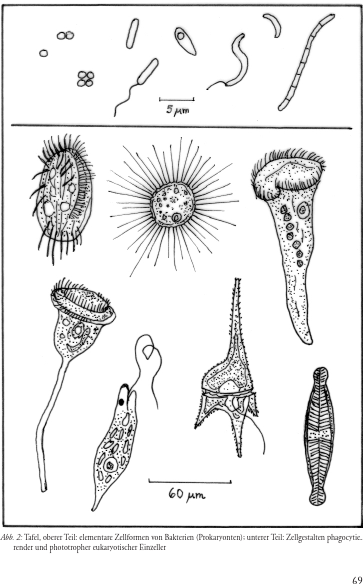Mikrobielle Prozesse und Pflanzenleben
Schlüssel zu einer Chemie des Lebendigen
Export Article Citation as
- Plain text
- BibTeX
- RIS format
- Download price : € 6.00
Abstract:
Like growth and decay of plants, microbial decomposition processes belong to the life of the earth. Microbial transformations are characterized to show their position in the context of the earth in general and in relation to plant life.
Microbial decomposition processes of plant residues are differentiated according to the grossly different environmental conditions in which they occur. Two basic types are given in soil and water. Large scale
experiments are described in which five different types of decomposition processes in water were studied: one under oxic conditions and four under various anoxic conditions. In each case the sequence of changes in appearance of shape, colour and smell was described. The transformations were followed with inner participation. So the constellation of the reaction conditions is experienced as the mood or atmosphere in which the entire process takes place.
Chemistry and biochemistry are concerned with the transformations of substances. These are consequently in a temporal and environmental context with other substances. For reactions to take place, chemical as well as microbial processes are initiated by establishing the proper reaction conditions. It appears appropriate to recognize microbial life processes in soil and water as part of a chemistry of life.
In contrast to laboratory experiments, microbial processes in nature are not limited in space and time as they proceed in the context of life in the biosphere of the earth. Plant development begins from the seed: roots grow down into the soil and the sprout above ground grows and differentiates into special forms, colours and smell. The plant phenotype becomes the expression of the specific nature of the plant. In contrast, the specific nature of micro-organisms, as process germs, gives rise to new environments. This is finally considered from the imaginative point of view which takes into account the relationship between inside and outside with respect to the earth: plant development above ground and microbial life processes in soil are recognized as interconnected and complementary life processes.

